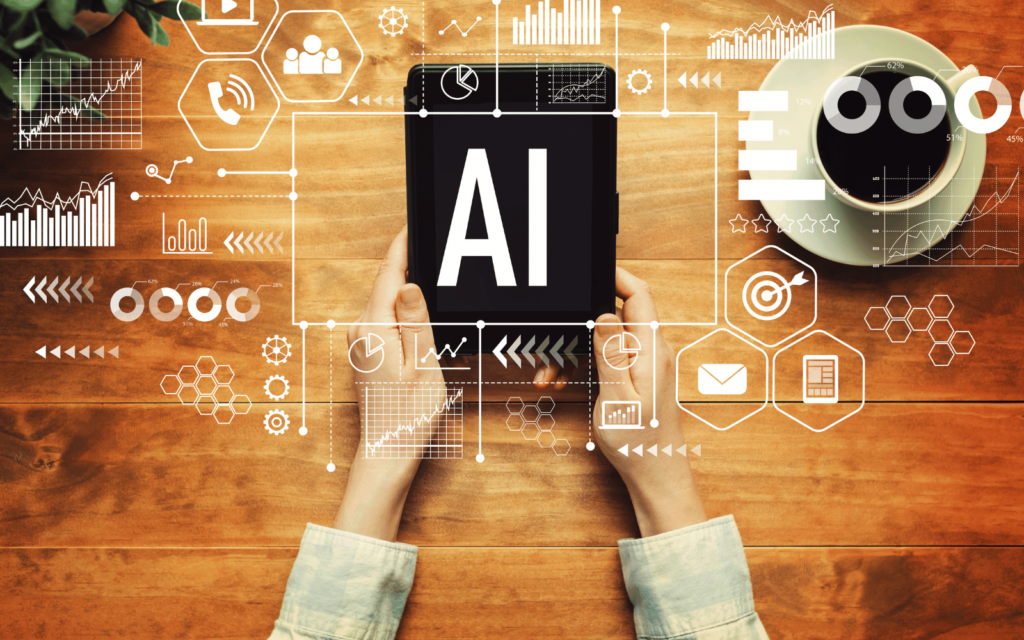“If you made a movie about AI now, it would be called ‘Everything, Everywhere, All at Once’,” joked Jens-Hendrik Jeppesen, Workday’s senior director for corporate affairs for Europe, the Middle East and Africa (EMEA), referring to the Oscar-winning film.
Jeppesen captures the current zeitgeist around artificial intelligence, which was a low-key tech industry buzzword for years before OpenAI’s ChatGPT turned it into the mainstream in November 2022.
Now, AI is at its peak of what Gartner calls the “hype cycle” – which most of us remember about the first year of the so-called fourth industrial revolution (4IR). Unlike that now-faded fad, as well as Facebook’s costly $26-billion bet on its metaverse VR world, AI is gaining in popularity and – perhaps unexpectedly – usefulness.
The biggest threat initially seemed to be human jobs, but that fearmongering has dissipated as the potential for AI to upskill employees for these new ways of working has emerged.
“Every business nowadays is a talent business,” Workday co-president Sayan Chakraborty tells the FM.
Read More: AI: the silent partner in your side hustle
Globally there is a shift towards a “skills-based methodology, as opposed to credentials or traditional-based ways of hiring people,” he says, which AI can help to develop. This is even more “salient” for new workers coming into the workforce, he adds, who will have “grown up with ChatGPT,” he told the FM at Workday’s Rising conference in Barcelona last year.
As Accenture CEO Julie Sweet said at the World Economic Forum last month, the consultancy firm now has 12 jobs in its technology department that didn’t exist a year ago, including a prompt engineer for writing the complicated prompts needed to get meaningful responses from a generative AI service.
“Many of the jobs that are being created are definitely highly skilled jobs,” she told Yahoo Finance. The “big challenge today” in being successful with using artificial intelligence is “actually going from the cool demos to operationalising it, and talent is front and centre”.
Chakraborty believes AI and specialisation will be inextricably linked going forward. “We see that at Workday in our skills cloud, which is an AI-generated ontology of skills,” he explains. When new projects are conceived, the HR software firm searches its own skills database for who can be a contributor.
“The companies producing human-relevant data are going to become increasingly relevant in future,” says Chakraborty, who sits on the United States National Artificial Intelligence Advisory Committee, which advises the president on AI-related policy issues.
“You have to have a partner with you on the journey that is going to support the business you are going to be, and not just the business you are,” he presciently adds.
Workday itself has evolved from a service to a platform, says its co-CEO Carl Eschenbach. As human capital has become increasingly central in business, and software has evolved, “you are no longer doing financials and HR separately,” he tells the FM. They both have “scope creep”.
Workday is arguing that it makes more sense to incorporate a company’s financial services into its HR software. With its strong HR reputation, it wants to convince chief financial officers (CFOs), that it is a better bet – especially given this increasing focus on skills.
Luckily, says Tim Wakeford, Workday’s vice-president of financials product strategy, the HR industry was “much more conformable moving to cloud” while it sees a larger addressable market through the CFOs it already deals with. “We are better penetrated in HR than finance,” he told the FM.
Read More: The New York Times’ AI copyright lawsuit shows that forgiveness might not be better than permission
Before he sold his startup to Workday, Chakraborty studied at the prestigious Massachusetts Institute of Technology (MIT), from which he has both a Master’s and bachelor of science degree in aerospace engineering. He then worked at NASA’s famed Jet Propulsion Laboratory as an engineer on interplanetary spacecraft; and later on the early commercialisation of global positioning systems (GPS). He was also vice president of software development at Oracle.
On his desk at work, he has a prized Apollo 13 medallion, commemorating the infamous explosion during the 1970 space mission, and equally amazing survival of the crew.
“The Apollo 13 represents that technology is great,” he tells the FM. Check out my podcast interview here.
“When that tank exploded in the service module in Apollo 13, and they went to the books and said, ‘what do you do next,’ there wasn’t an answer. Because no one had foreseen that as survivable.”
But, he beams as he explains, “What happened was humans used the technology and accomplished something extraordinary. The reason I keep that medal on my desk is always to remind me of what humans are capable of with technology in their service.”
- This column first appeared in the Financial Mail



